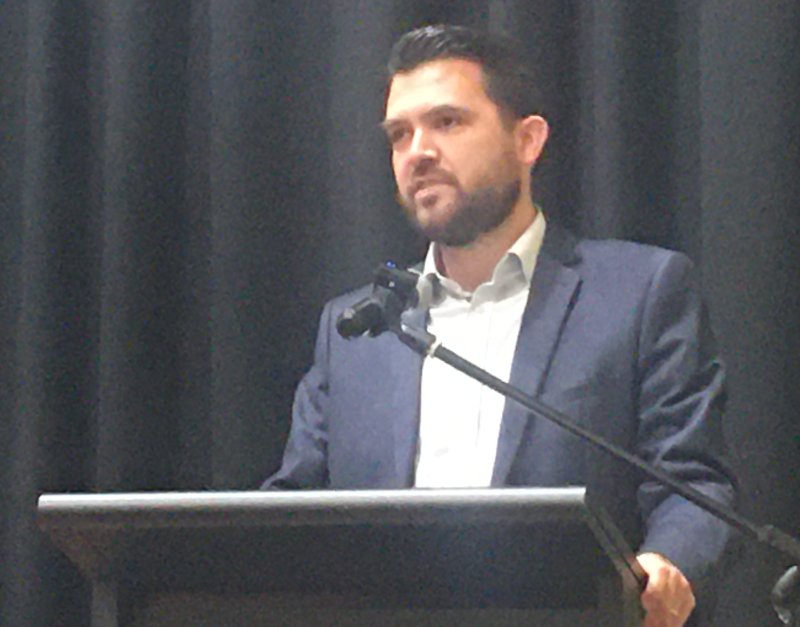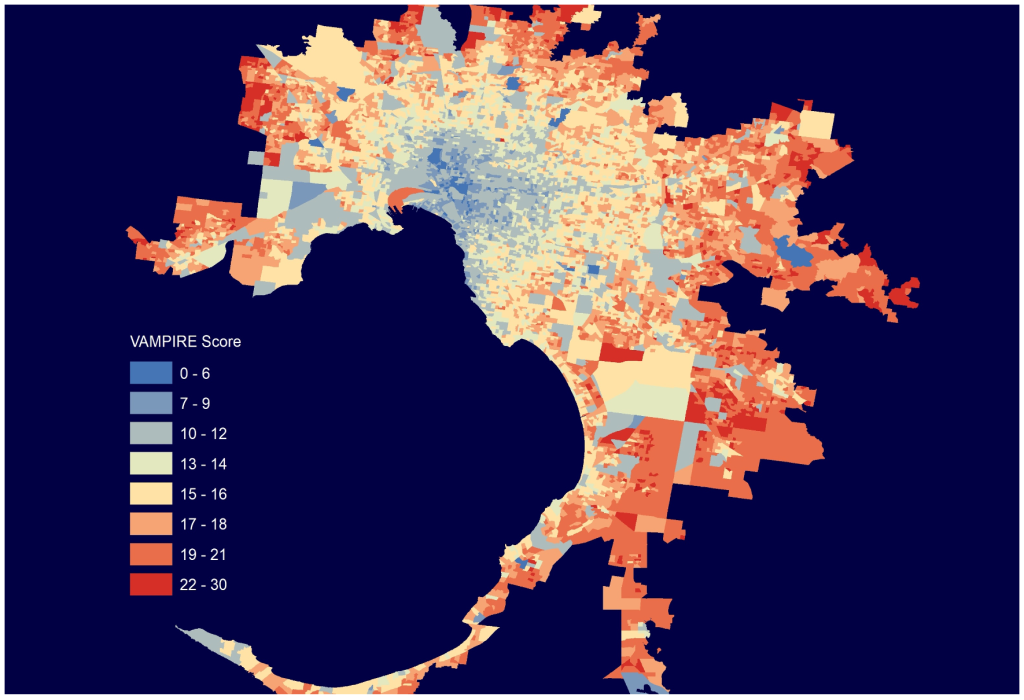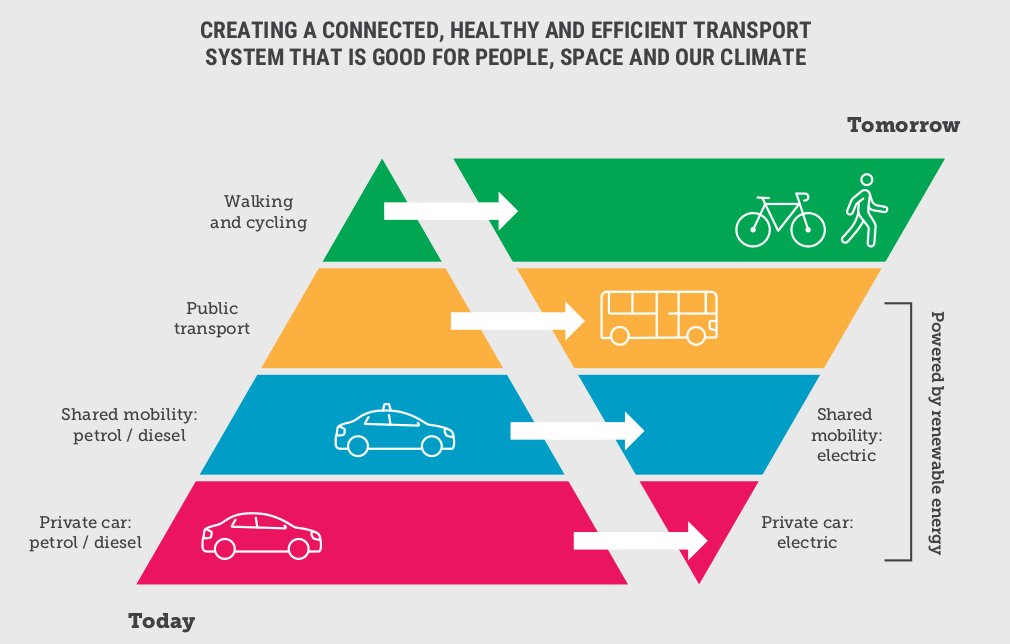
Local Candidates for the 2022 state election discussed transport issues for Brunswick and the northern region in a forum organised by The Metropolitan Transport Forum and hosted by the City of Merri-bek at Brunswick Town Hall on 4 October 2022.
Some of the local issues discussed included:
- frequency and reliability of trains on the Upfield Line and the need to duplicate and extend the line;
- better bus services especially on Sundays;
- more level access tram stops to boost accessibility for all;
- safe cycling and provision of local protected cycling infrastructure.
- Refurbishment of Sydney Road to increase safety and liveability for all users
- Brunswick Level Crossing Removal
Duplication and extension of the Upfield line featured prominently. Due to the poor heavy rail public transport in the northern suburbs of Melbourne (north of Merri-bek), many people drive congesting local arterial roads and station car parks.
The State government paid $5 million for a report on the Somerton link in 2018, and has refused to make this report public. Just recently completed was a 3.5km upgrade to the M80 Western Ring Road for $518 million, yet silence on improving the Upfield rail corridor to service the growing residential suburbs near Craigieburn, Mickleham and Wallan.
The forum live video feed:
Announced Speakers at the forum included:
- Tim Read MLA Brunswick
- Fiona Patten MLC Northern Metro Region (replaced by Shea Evans, Reason Party candidate)
- Evan Mulholland, Liberal candidate for Northern Metro Region
- Mike Williams, Labor candidate for Brunswick
As Fiona Patten was unable to attend due to surgery to remove a kidney due to cancer, she was replaced by Shea Evans, Reason Party Candidate for Brunswick.

Jerome Small, Victorian Socialists candidate for Northern Metro; Leah Horsfall, Animal Justice Party candidate for Northern Metro, and Sue Bolton, Socialist Alliance candidate for Pascoe Vale were all afforded an opportunity to ask a question of the panel.
The forum was held in Brunswick and most of the live audience were also likely to be from Brunswick. Much of the discussion had a strong focus on transport issues in the southern end of the municipality. Three of the candidates were standing for the electorate of Brunswick.
Duplication and extension of the Upfield Line to Wallan was one issue that went beyond Brunswick, indeed beyond Merri-bek. Improving bus routes, including orbital bus routes in outer suburban areas was also raised. This reflects that transport issues need to be resolved on a regional level. If we can improve transport solutions in the suburbs to the north of us, it will reduce congestion on our streets.
Provision of safe cycling with protected lanes was also an issue. While the Brunswick Level Crossing Removal will provide a much needed upgrade to the Upfield Path, it was highlighted there also needs to be more east-west protected bike lanes and protected bike lanes that meet local needs as highlighted by Coburg High School with a 75 percent active transport rate to school but poor walking and cycling infrastructure in the surrounding area.
Notes from the Evening

Tim Read: Do you remember Lytton, the Canadian Rockies town last year that was blasted by a heatwave and then had wildfire destroy it?, or Lincolnshire in the UK where temperatures hit 40C for the first time? This is the climate crisis. GHG emissions from transport in Victoria are rising because of cars. 1000 new cars purchased every single day in Australia. Need to move people from cars to other forms of mobility.
Most people uin lower Brunswick don’t have Driveways, but from here on up driveways become more common and car dependency increases. Public transport frequency and network connectivity presently not working. Upfield only runs 3 trains an hour. Buses, some don’t run on Sunday or evenings. They also need to become electric. Make tram stops accesssible, more bike lanes and safer for walking. More Merri-bek more liveable.

Mike Williams – most progressive government especially in addressing climate change. Importance of Brunswick LXR. Dedicated bike path to the city. Upgraded trams, making them more accessible. Suburban rail loop starts next year. Brunswick contest between ALP and Greens but on a state level ALP vs Libs.

Evan Mulholland – how to better connect transport infrastructure. Last time I stood I was at no2 on the ticket, this time I am at No1. I am a Public transport nerd, live in Watsonia north. Passionate about PT. Need to make transport boring again. Bus routes and train route extensions. Delivering benefits. Suburban Rail Loop will cannibalise transport funds for a generation. Support metro 2 to upgrade frequency. Like to see duplication and extension of the Upfield line to Wallan.

Shea Evans – efficient public transport, increase funding needed. Access and frequency needs to increase. Free wifi. Trams and buses need to take more types of people. Do LXR in an accessible and reasonable manner. Inclusion and accessibility at the forefront. Active transport needs to happen in an even way. Safe and direct bike routes on protected routes. Need to address climate crisis. Future plans important, for 2030, 2040, 2050. Longer term plans important. Plans need to have sound reason.
Questions
Jerome Small – orbital bus routes in outer suburbs, Government in 2017 had the opportunity to take back ownership of Metro trains but did not do so, make PT free or accessible.
Tim Read – have announced advocacy for 3000 electric buses.
Leah Horsfall – core is equality and affordability. Cost of Transport is concern.
Mike Williams – a range of concessions. SRL enormous for enabling access.
Tim Read – Vampire index outer suburban have highest ranking car dependency, fuel use, need the most help, need for capping PT fees.
Evan Mulholland – free for Health Care workers. Not everyone can afford to buy EV. Cycling not for me. Like to buy an electric scooter, but illegal.
Shea Evans – invest a lot more in PT would be great and making sure vulnerable groups have access.
Question on low floor trams but no accessible tram stops.
Tim Read – Rate of building painfully slow. While digging up to make accessible tram stops let’s make safe bike lanes too.
Mick Williams – will be able to progress under Labor.
Question on redesign of Sydney Road. When will it happen? Accessible trams, bike lanes and pedestrian improvements..
Evan Mulholland: Sydney Rd businesses hit hard. Need a Sydney Rd that works for everyone.
Tim Read: pop up bike lane should start now before LXR Brunswick starts
Mike Williams: to unlock Sydney Rd everyone around the table to meet, drive that process..
Evan Shea – how important it is, as a destination. Should be safe for cyclists and pedestrians and flow of traffic, accessible trams.
Question from Nic – poor consultation on transport eg bell to Moreland LXR
Tim Read – LXRP didn’t alter the project in any meaningful way to reflect residents views. We’ll start earlier.
Mike Williams – adopt the process Caulfield – Dandenong line. Driven by local MP.
Shea Evans – what the residents want should be taken into account. Ensure all user groups are consulted.
Evan Mulholland – consultation high priority. Have to include local MPs even when they are not of government.
Question on safe cycling routes east to west, north to south. Connected safe protected bike lanes.
Mike Williams – shout out to CERES. $1 million Merri Creek trail. Brunswick LXR will provide important routes.
Shea Evans – huge safety issue. Upfield doesn’t suit the entire community, need more protected bike lanes to ensure cyclists are safe.
Evan Mulholland – cyclists need to be safe. Keen to see as a priority.
Tim Read – Brunswick has only 1 separated bike lane on Dawson st. Extend it to Merri Creek. Put one down Moreland Rd too.
Question on Safe Access to Coburg Bridge, Coburg High School has 75% active transport but Unseparated footpaths not wide enough.
Sue Bolton: guaranteed timetable for Upfield duplication needed. Perfect time to do during Brunswick LXR. Accessible transport by Commonwealth Games in 2026 needed.
Final remarks:
Shea Evans – Reason cares about people. Inclusion, access in transport and in public life. We need to plan now. Need to happen in next term.
Evan Mulholland – looking at Bell St. Demanding duplication happens, Transport needs to be guided by the experts. Upfield rail line needs to be Connected and extended to Wallan, and prioritise Metro 2. Invest more in Upfield line.
Mike Williams – duplication important. Different issues. Once we have metro tunnel we can increase capacity by 71%. LXR in Brunswick will also contribute to increasing capacity.
Tim Read – agree with Bolton proposition about duplication. Bell st bridge also an issue. Make the electorate marginal and things happen. Make Pascoe Vale marginal and governments pay attention. Go further and go faster in transport connections and the network.
Background
Looking at the VAMPIRE index
Tim Read mentioned the Vampire Index. The VAMPIRE Index (vulnerability assessment for mortgage, petroleum and inflation risks and expenditure) is a measure of risk to households arising from the combined impact of increased mortgage costs, rising fuel prices and inflation. The index uses four indicator variables from the Census, which are combined to create a fuel price and mortgage vulnerability index score that can be mapped according to geographical area. The four variables include:
- Journey to work by car,
- Households with two or more cars,
- Median weekly household income, and
- Proportion of dwellings purchased through a mortgage or rent/buy scheme.
Outer urban areas, like the suburbs in Hume, Whittlesea and Mitchell have a high Vampire Index. Part of addressing this problem is improving the public transport availability and frequency in these areas. Like extending the Upfield line to Wallan and provision of feeder bus services and bike lanes to stations.
Jago Dodson, Professor of Urban Policy and Director, Centre for Urban Research, RMIT University, devised the VAMPIRE index in 2006. His March 2022 article – 5 maps that show why free public transport benefits the affluent most – highlights use of the VAMPIRE index.
Dodson argues that “Making public transport cheaper is less important than providing better and more equitably distributed services. This could be funded by cancelling road projects that entrench automobile dependence – such as Melbourne’s A$16 billion North East Link toll tunnel project – and spending the money on outer suburban public transport upgrades.”

Transport emissions are 12 percent of emissions in Merribek
Automotive transport contributes an estimated 12 per cent of Moreland greenhouse gas emissions as of June 2020. Motorbikes add another 1 per cent. Buses also add 1 per cent. (Snapshort climate)
The bus fleet should be converted to electric buses as soon as practicable from local Victorian manufacturing.
While transition to Electric vehicles needs to be progressed, this won’t solve all the issues. Traffic congestion will still be a problem. Abrasive particulate pollution from vehicles is a major health issue, and may actually marginally increase due to Electric vehicles being heavier than similar petrol/diesel models.
OECD suggests improve public transport, walking and cycling
In December 2020 the OECD suggested that “electric vehicles should not be exempted from tolls and congestion charges aimed at reducing road traffic emissions. Instead, road traffic regulations should consider both exhaust and “non-exhaust” emissions from all vehicles and should take into account factors like vehicle weight and tyre composition. Policy makers should also favour measures that reduce driving distances, limit urban vehicle access and encourage public transport, walking and cycling.”
It is important that public transport, cycling and walking be encouraged and infrastructure be put in place to encourage mobility mode shift.
International Energy Agency: need to cut oil use, provide better cycling infrastructure
The International Energy Agency in March 2022 put out a document on A 10-Point Plan to Cut Oil Use. The fourth point in this plan was to “Make public transport cheaper; incentivise micro-mobility, walking and cycling. Most of these actions are actionable at state and Federal level, but providing better infrastructure for cycling is definitely important for the Council to implement. We have all seen how global events have increased fuel prices.
Climate Council articulates transition to using sustainable transport
The Climate Council published a sustainable transport policy guide in July 2022. It had 3 main policy asks:
- Allocate Appropriate Budget For Public Transport, Walking And Bike-Riding In Line With Best Practice And The Public’s Needs
- Encouraging electric bike (e-bike) uptake
- Convert the state’s bus fleet to clean, Quiet and zero-emission buses
Protected cycling lanes are important to encourage mode change, particularly in the north of the municipality.

Importance of Protected cycling infrastructure to increase cycling
A recent academic study by Pearson et al (March 2022) which focussed on the potential for increasing cycling in Melbourne, provides justification for protected cycling infrastructure to encourage people interested in cycling to start doing so. This is particularly important for women interested in starting to cycle. The researchers conclude that “Our results show the potential for substantial increases in cycling participation, but only when high-quality cycling infrastructure is provided.”
Putting in protected infrastructure for cycling can encourage more people to cycle, which will also reduce congestion and is also important for some people to reduce mobility costs with the current escalating of the costs of living. This is also an equity issue. more people on lower incomes tend to cycle due to reduced cost. Women are more likely to cycle if there is protected cycling infrastructure to feel safe.
The Intergovernmental Panel on Climate Change (IPCC) 5th Assessment report author Dr Valérie Masson-Delmotte says “In fact, cycling is one of the lifestyle changes with the largest potential to reduce our individual carbon footprint.” Read more on what the IPCC report says on importance of cycling.

Victoria falling behind on funding active transport
Melbourne is falling behind Sydney in active transport, particularly cycling infrastructure rollout and budgeting. NSW has an Active Transport Minister, Rob Stokes, with a five year budget for cycling and walking of $980 million, an amount which Stokes wants to double.
Victorian State Government budget 2022 on cycling: “There is roughly $21.8 million allocated for active transport, with the Department of Transport earmarking a number of bike projects across metropolitan and regional Victoria.” says Bicycle Network, who also highlight some cycling infrastructure being built as part of major transport projects and upgrades. It seems the Victorian state government is falling far behind in funding active transport infrastructure for both liesure and commuting as compared with New South Wales.
Victoria is not on track in ramping up sustainable transport to address the climate emergency.
References:
- International Energy Agency (IEA) March 2022 A 10-Point Plan to Cut Oil Use. https://www.iea.org/reports/a-10-point-plan-to-cut-oil-use
- Climate Council, July 2022, Sustainable transport policy guide https://www.climatecouncil.org.au/sustainable-transport-policies-states/
- OECD, Dec 2020, Non-exhaust Particulate Emissions from Road Transport: An ignored Environmental Policy Challenge https://www.oecd.org/environment/measures-needed-to-curb-particulate-matter-emitted-by-wear-of-car-parts-and-road-surfaces.htm
- Snapshot Climate – Moreland 2019/20 municipal emissions snapshot https://snapshotclimate.com.au/locality/municipality/australia/victoria/moreland/2019/fy
- Pearson et al (March 2022), ‘The potential for bike riding across entire cities: Quantifying spatial variation in interest in bike riding’ https://www.sciencedirect.com/science/article/pii/S2214140521003200
[…] also Merri-bek Transport Forum which was very Brunswick […]
LikeLike
[…] the MTF forum on Transport was very focussed on the Brunswick District, Bicycle Users Group members have organised a […]
LikeLike